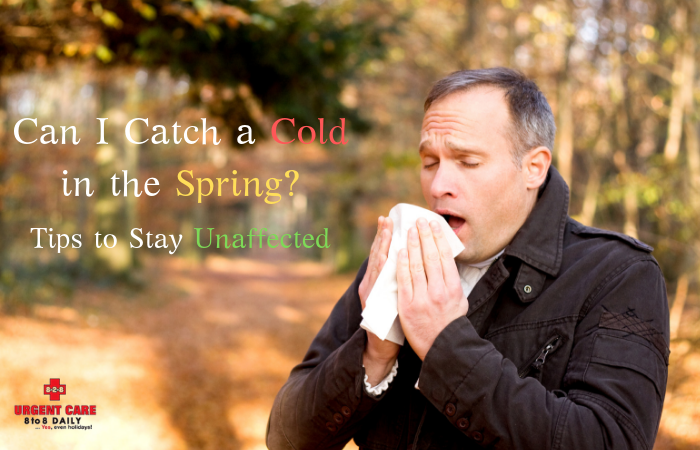


While everyone thinks of flu season as always being in the fall, it shows up again in the spring. In fact, people are often more susceptible to catching a cold in the spring. That’s because of dramatic changes in the weather, as well as the lower air quality that can expose you to more allergens and airborne contaminants that may increase your risk of catching a spring cold or a flu bug.
A mix of things may work together in exposing you to the cold-causing viral infectious agents (Human Rhinovirus being the most common one) during the springtime. Spring weather is cold enough to cause infectious agents to keep replicating – though comparatively slowly. Allergies, caused by the release of pollen grains into the air, increase your risk of getting struck by the cold viruses. And, your minimized immune system from remaining mostly inside during the winter months catches you off guard when fighting against those viral agents.
In short, it’s more because of the increased vulnerability to common cold viruses than their presence, which is much higher during winters, that causes the secondary peak in the common cold cases during the springtime.
There are several things you can do to protect yourself from the springtime flu.
If you are sneezing and don't know whether or not you have an allergy or a cold, there are a few things to consider. Allergies aren't accompanied by a fever; colds and the flu are. Another thing to remember is that most allergies don't cause you to cough. Constant sneezing is the trademark of most allergies.
If you have a cold, the odds are that your sneezes are intermittent and often accompany feelings of being under the weather. Lastly, allergies produce a clear, water-like mucous, while the same produced by a cold is usually thicker and has a yellowish or greenish tint. While swollen glands, sore throats, and watery eyes are all symptoms of a cold or the flu, they may be present with allergies if a bacterial infection is present. It’s always safe to get a proper checkup done at an urgent care clinic nearby and proceed with the right medication and treatment to get faster recovery.
Everyone looks forward to the warmer weather of spring. Avoid the colds that often accompany the nicer weather by taking care of yourself and boosting your immune system. A few simple precautions will help you avoid several days of missing out on the nicer weather.
Also Read: Flu Shot Guide for 2018-2019: What You Need to Know